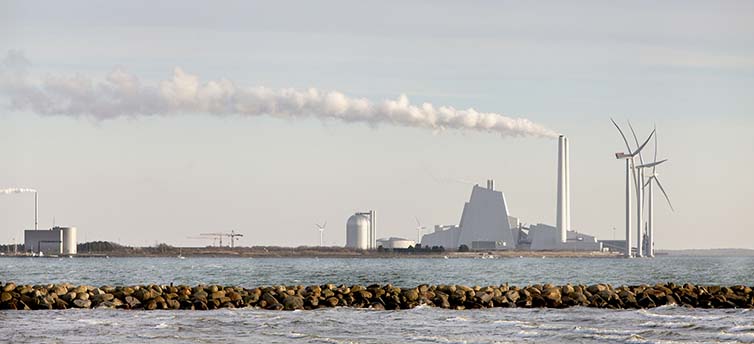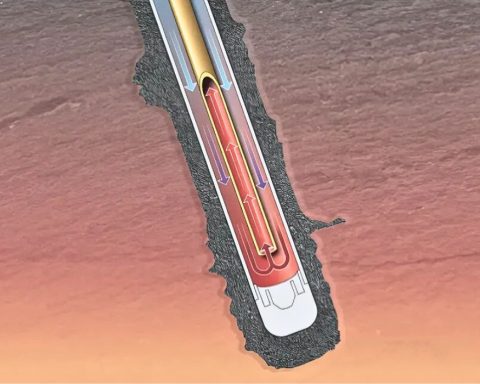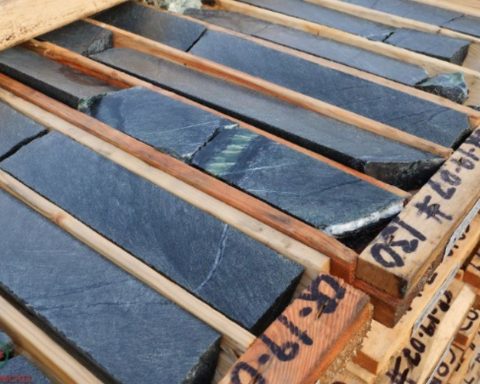Danish shipping giant business conglomerate Maersk is selling its oil and gas division to French oil major Total for $7.45 billion (U.S.), a deal supported by both trade unions and the government.
If the sale receives regulatory approval next year, it will mark the departure of Denmark’s last oil company and leave the country independent of direct oil and gas revenue. Once Europe’s second-largest source of oil, these revenues as a percentage of Denmark’s GDP have fallen from 1.4 per cent in 2012 to an estimated 0.2 per cent in 2017.
Total is still expected to operate Maersk’s North Sea oil and gas fields, which will result in some continued indirect revenue for the Danish government.
Maersk’s August announcement occurred the same month that the $1.3 billion (U.S.) sale of DONG Energy’s North Sea oil and gas operations to petrochemicals firm Ineos was finalized.
The majority state-owned integrated energy company DONG, which stands for Danish Oil and Natural Gas, was founded 45 years ago with the goal of developing North Sea oil. Yet over the past decade it has transformed itself into the world’s largest offshore wind farm company, spurred on by Denmark’s aggressive efforts to decarbonize its economy.
A portion of revenues derived from DONG’s divestment will be reinvested in growing the company’s renewables business, which includes a growing portfolio of offshore wind projects across Europe. DONG is also exploring opportunities in North America, including three projects in the U.S.
The company also signed a letter of intent with NaiKun Wind Energy to negotiate a joint development agreement for the Haida Energy Field Offshore Wind Project in the Hecate Strait off the coast of British Columbia.
- CK Staff
- CK Staff
- CK Staff
- CK Staff
- CK Staff
- CK Staff
- CK Staff
- CK Staff
- CK Staff
- CK Staff
- CK Staff
- CK Staff
- CK Staff
- CK Staff
- CK Staff
- CK Staff
- CK Staff
- CK Staff
- CK Staff
- CK Staff
- CK Staff
- CK Staff
- CK Staff
- CK Staff
- CK Staff
- CK Staff
- CK Staff
- CK Staff
- CK Staff
- CK Staff
- CK Staff
- CK Staff
- CK Staff
- CK Staff
- CK Staff
- CK Staff
- CK Staff
- CK Staff
- CK Staff
- CK Staff
- CK Staff
- CK Staff
- CK Staff
- CK Staff
- CK Staff
- CK Staff
- CK Staff
- CK Staff
- CK Staff
- CK Staff
- CK Staff
- CK Staff
- CK Staff
- CK Staff
- CK Staff
- CK Staff
- CK Staff
- CK Staff
- CK Staff
- CK Staff
- CK Staff
- CK Staff
- CK Staff
- CK Staff
- CK Staff
- CK Staff
- CK Staff
- CK Staff
- CK Staff
- CK Staff
- CK Staff
- CK Staff
- CK Staff
- CK Staff
- CK Staff
- CK Staff
- CK Staff
- CK Staff
- CK Staff
- CK Staff
- CK Staff
- CK Staff
- CK Staff
- CK Staff
- CK Staff
- CK Staff
- CK Staff
- CK Staff
- CK Staff
- CK Staff
- CK Staff
- CK Staff
- CK Staff
- CK Staff
- CK Staff
- CK Staff
- CK Staff
- CK Staff
- CK Staff
- CK Staff
- CK Staff
- CK Staff
- CK Staff
- CK Staff
- CK Staff
- CK Staff
- CK Staff
- CK Staff
- CK Staff
- CK Staff
- CK Staff
- CK Staff
- CK Staff
- CK Staff
- CK Staff
- CK Staff
- CK Staff
- CK Staff
- CK Staff
- CK Staff
- CK Staff
- CK Staff
- CK Staff
- CK Staff
- CK Staff
- CK Staff
- CK Staff
- CK Staff
- CK Staff
- CK Staff
- CK Staff
- CK Staff
- CK Staff
- CK Staff
- CK Staff
- CK Staff
- CK Staff
- CK Staff
- CK Staff
- CK Staff
- CK Staff
- CK Staff
- CK Staff
- CK Staff
- CK Staff
- CK Staff
- CK Staff
- CK Staff
- CK Staff
- CK Staff
- CK Staff
- CK Staff
- CK Staff
- CK Staff
- CK Staff
- CK Staff
- CK Staff
- CK Staff
- CK Staff
- CK Staff
- CK Staff
- CK Staff
- CK Staff
- CK Staff
- CK Staff
- CK Staff
- CK Staff
- CK Staff
- CK Staff
- CK Staff
- CK Staff
- CK Staff
- CK Staff
- CK Staff
- CK Staff
- CK Staff
- CK Staff
- CK Staff
- CK Staff
- CK Staff
- CK Staff
- CK Staff
- CK Staff
- CK Staff
- CK Staff
- CK Staff
- CK Staff
- CK Staff
- CK Staff
- CK Staff
- CK Staff
- CK Staff
- CK Staff
- CK Staff
- CK Staff
- CK Staff
- CK Staff
- CK Staff
- CK Staff
- CK Staff
- CK Staff
- CK Staff
- CK Staff
- CK Staff
- CK Staff
- CK Staff
- CK Staff
- CK Staff
- CK Staff
- CK Staff
- CK Staff
- CK Staff
- CK Staff
- CK Staff
- CK Staff
- CK Staff
- CK Staff
- CK Staff
- CK Staff
- CK Staff
- CK Staff
- CK Staff
- CK Staff
- CK Staff
- CK Staff
- CK Staff
- CK Staff
- CK Staff
- CK Staff
- CK Staff
- CK Staff
- CK Staff
- CK Staff
- CK Staff
- CK Staff
- CK Staff
- CK Staff
- CK Staff
- CK Staff
- CK Staff
- CK Staff
- CK Staff
- CK Staff
- CK Staff
- CK Staff
- CK Staff
- CK Staff
- CK Staff
- CK Staff
- CK Staff
- CK Staff
- CK Staff
- CK Staff
- CK Staff
- CK Staff
- CK Staff
- CK Staff
- CK Staff
- CK Staff
- CK Staff
- CK Staff
- CK Staff
- CK Staff
- CK Staff
- CK Staff
- CK Staff
- CK Staff
- CK Staff
- CK Staff
- CK Staff
- CK Staff
- CK Staff
- CK Staff
- CK Staff
- CK Staff
- CK Staff
- CK Staff
- CK Staff
- CK Staff
- CK Staff
- CK Staff
- CK Staff
- CK Staff
- CK Staff
- CK Staff
- CK Staff
- CK Staff
- CK Staff
- CK Staff
- CK Staff
- CK Staff
- CK Staff
- CK Staff
- CK Staff
- CK Staff
- CK Staff
- CK Staff
- CK Staff
- CK Staff
- CK Staff
- CK Staff
- CK Staff
- CK Staff
- CK Staff
- CK Staff
- CK Staff
- CK Staff
- CK Staff
- CK Staff
- CK Staff
- CK Staff
- CK Staff
- CK Staff
- CK Staff
- CK Staff
- CK Staff
- CK Staff
- CK Staff
- CK Staff
- CK Staff
- CK Staff
- CK Staff
- CK Staff
- CK Staff
- CK Staff
- CK Staff
- CK Staff
- CK Staff
- CK Staff
- CK Staff
- CK Staff
- CK Staff
- CK Staff
- CK Staff
- CK Staff
- CK Staff
- CK Staff
- CK Staff
- CK Staff
- CK Staff
- CK Staff
- CK Staff
- CK Staff
- CK Staff
- CK Staff
- CK Staff
- CK Staff
- CK Staff
- CK Staff
- CK Staff
- CK Staff
- CK Staff
- CK Staff
- CK Staff
- CK Staff
- CK Staff







